Desert Orchid: 'People thought it was an act of lunacy to run over three miles'
Nick Pulford marks a notable anniversary in the making of a King George legend
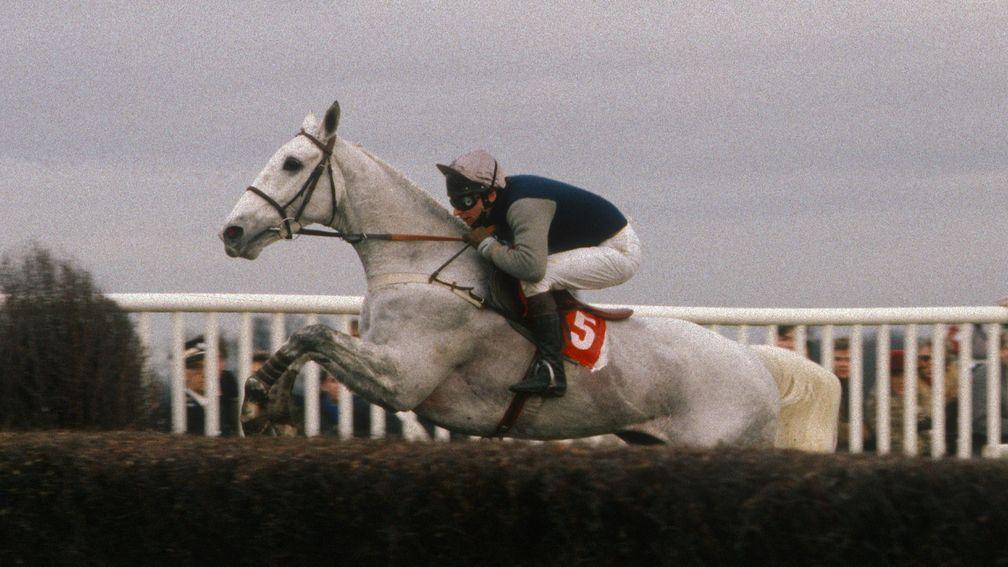
Fans' Favourites is a weekly feature in the Racing Post Weekender in which we talk to those closest to racing's most popular horses and find out why they tug on our heartstrings. This week's subject: Desert Orchid
"There was Christmas Day, and then there was a fireworks display.” The words of Richard Burridge, one of Desert Orchid’s co-owners, sum up the extraordinary years when the brilliant grey’s annual appearance at Kempton on Boxing Day was for jump racing fans as much part of the festive season as roast turkey, Christmas pudding and the Queen’s speech.
In winning a then record four King George VI Chases, punctuated by heroic defeats in two more, Desert Orchid became a Boxing Day star, illuminating the sporting scene with his special brand of electrifying entertainment. It was the occasion where the legend of Dessie was born and it was where it ended too, leaving behind him a treasure trove of golden memories and a popularity to rank alongside fellow titans Arkle and Red Rum.
This year marks the 35th anniversary of his first King George, when he made his name at the top level with a stunning triumph, and also the 30th anniversary of his last, when he fell and galloped riderless past the stands into retirement. What happened in that five-year span was phenomenal.
None of it would have been possible without the singular genius of trainer David Elsworth, who saw something in Desert Orchid that nobody else could. Coming up to the 1986 King George, Desert Orchid was seven (about to turn eight) and had established himself as a significant force, winning 13 times over hurdles and fences, but had come up short in top races such as the Champion Hurdle, Christmas Hurdle and Arkle Chase. Just as significantly, considering the three-mile trip of the King George, most of his winning had been done around two miles.
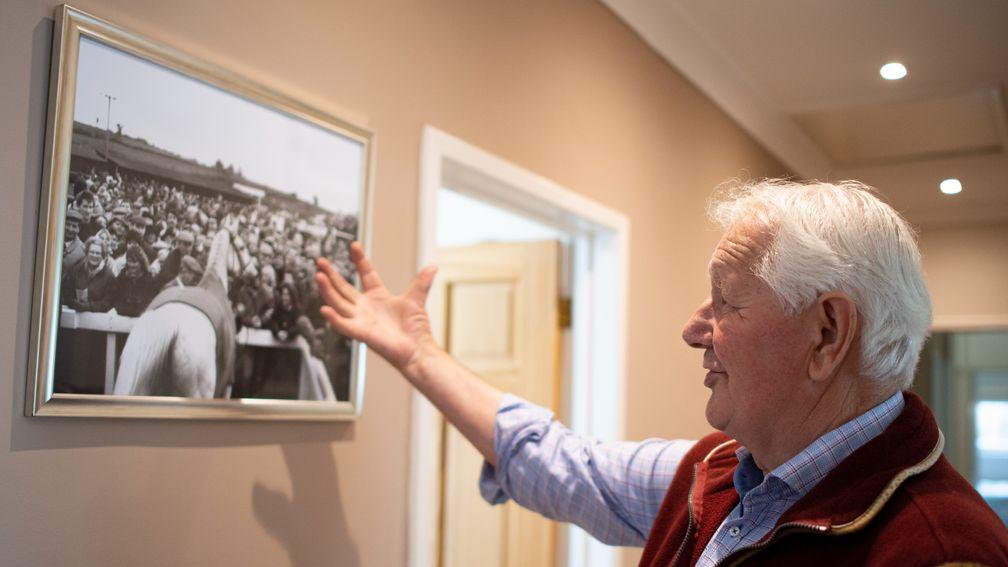
“There was always this debate about his stature – was he a tearaway two-miler? did he just have one good season? was he a hurdler or a chaser?” recalls Burridge, who owned Desert Orchid with his father Jimmy and Simon Bullimore. “It wasn’t exactly that he had his detractors, but there were people who had very firm ideas about what sort of horse he was. And of course as soon as he heard those, David immediately set out to prove them all wrong because he knew what sort of horse he was.”
A racing legend retires: David Elsworth calls time on remarkable training career
Elsworth always remembered how Desert Orchid had finished a close second in a 2m6½f novice hurdle behind Catch Phrase, who went on to win the three-mile Challow on his next run. That day the trainer had turned to Burridge and told him, “You’ve got a bloody goldmine,” meaning he could see in time that Desert Orchid would blossom over longer distances.
The 1986 King George was the time to prove it, even though the mercurial grey had been a disappointing favourite in his first big target of the season, the H&T Walker Gold Cup at Ascot over two and a half miles, and then been dropped back to two miles to win the Frogmore Handicap Chase there, with just 13 days until Boxing Day. Elsworth’s approach was unconventional to say the least.
“People thought it was an act of lunacy to run him over three miles and David was kind of amusing himself by announcing that the Frogmore was the perfect prep race for the King George,” Burridge says. “He knew the horse much better than the press did, he knew how well he was and he knew intuitively he would stay.
"With David it was always much more his feeling about what was going to happen. He really enjoyed being in a group of one, buoyed by his own convictions, and he loved the idea of taking everybody on. He was completely confident. I talked to him the night before the race and he said ‘He’ll win’.”
Most people, however, expected Desert Orchid to wilt in the last half-mile and he was a 16-1 shot in a strong field that included Forgive ’n Forget, the 1985 Cheltenham Gold Cup winner, three-time King George hero Wayward Lad and Combs Ditch, the apparent Elsworth first-string who had been runner-up in the previous two years.
Colin Brown, Elsworth’s jockey, decided to stick with Combs Ditch but had a nagging doubt about his choice. “I’m not completely convinced I’ve done the right thing,” he said. “I think the other horse might just see the trip out and this track will suit him.”
Brown, who had ridden Desert Orchid in all but one of his races until then, was spot on. With Simon Sherwood on board for the first time, the exuberant grey took his customary place at the head of affairs and still held a commanding lead at the point on the final circuit where it was expected he would start to tire.
The images, and above all the feelings, of the day remain vivid to Burridge. “He hit the last fence down the back, but at the same time you could see the other riders were starting to row away and Simon still hadn’t moved,” he says. “As they came into the straight you thought ‘Bloody hell, he’s going as well as anything and he’s not been asked a question yet’. Then Simon let out a reef and Dessie jumped the last three fences in the straight as well as any horse has ever jumped them.
“We were all caught up in the moment of watching this extraordinary thing unfold. Your own horse 15 lengths clear at the second-last and then holding your breath over the last. He went past the post and just pricked his ears, like he always did, and we went barmy. There’s nothing like winning any horse race, but to win that race he’d become officially one of the best horses in training.”
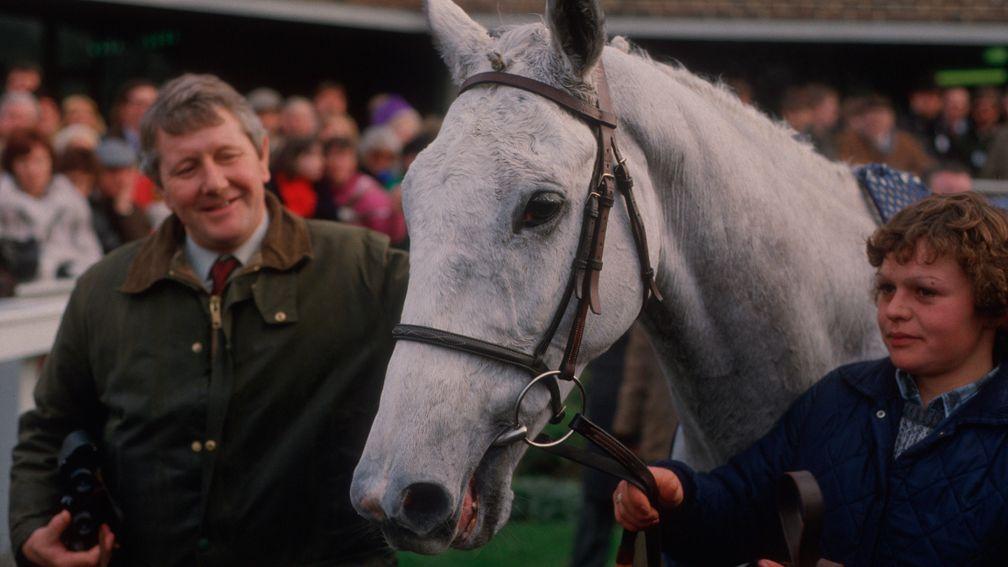
This was the start of the legend. By the end of his career, aged 12, Dessie had added a host of famous victories in the Cheltenham Gold Cup, Whitbread Gold Cup, Racing Post Chase, Irish Grand National, Tingle Creek Chase, Victor Chandler Chase and Martell Cup, but somehow it always came back to Kempton and the King George.
“Kempton over three miles suited him better than any track in the country,” Burridge says. “A flat, right-handed track that puts the accent on brilliance and jumping ability. It suited him down to the ground because of the way he attacked his fences and gained lengths over them. It was obvious after the first year that the King George was his natural target.”
Dessie: the dashing grey who captured the hearts of the nation in a golden era
The first title defence in 1987 did not go to plan, however. Taken on for the lead by classy front-runner Beau Ranger, Desert Orchid ran out of gas in the straight and was passed by the Francois Doumen-trained 25-1 shot Nupsala. The evens favourite was well beaten by 15 lengths but it was a brave effort after his early exertions. “That one all went a bit wrong,” Burridge says. “In the classic way they cut each other’s throats up front and Dessie actually did quite well to come second.”
Unfortunately for Brown, who had done so much to mould Desert Orchid, that was the only time he rode him in the King George. He retired after the Cheltenham Festival that season, nominating his career highlight as “just being able to ride Desert Orchid”, and the ride passed back to Sherwood, who was on board for the incredible sequence of eight wins from April 1988 to March 1989 that included a second King George and the Gold Cup. Then Sherwood retired too and Richard Dunwoody became Dessie’s regular partner, winning the King George on him in 1989 and 1990.
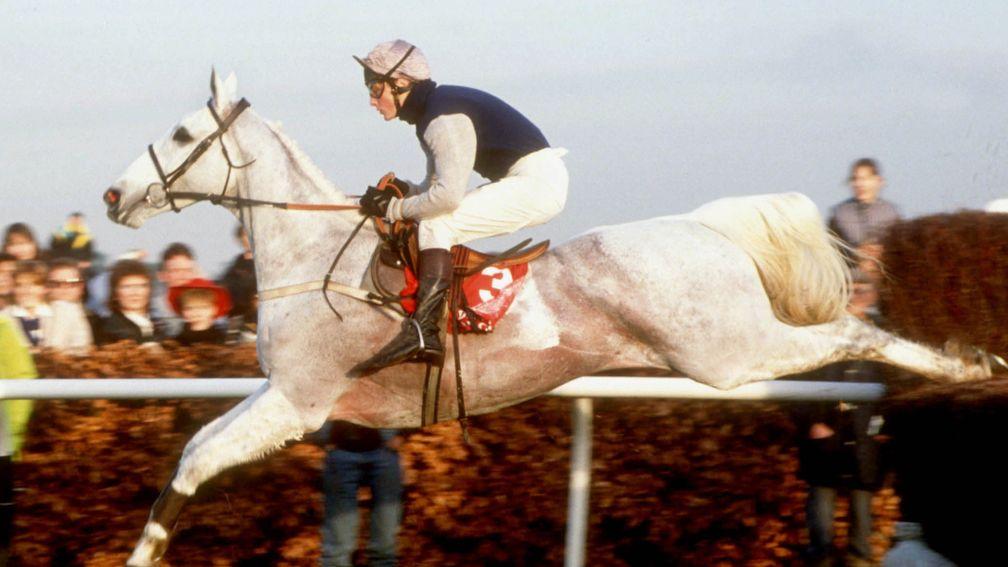
“For the later ones we thought on paper he was definitely going to win, but we never counted our chickens or got blasé about it,” Burridge says. “But he did win those King Georges by very wide margins, and I think it was a big part of his popularity that he did it with such evident relish and enthusiasm. For us it was always intensely exciting and exhilarating.”
Desert Orchid factfile
Born April 11, 1979
Died November 13, 2006
Starts 70
Wins 34
Biggest wins King George VI Chase (1986, 1988, 1989, 1990), Martell Cup (1988), Whitbread Gold Cup (1988), Tingle Creek Chase (1988), Victor Chandler Chase (1989), Cheltenham Gold Cup (1989), Racing Post Chase (1990), Irish Grand National (1990)
Prize-money £654,066
Racing Post Rating 189
The total winning distance of Dessie’s four King Georges was 39 lengths and he beat most of the best around in that era, including Barnbrook Again, Kildimo, The Fellow and Yahoo, as well as Forgive ’n Forget and Wayward Lad in the first one.
Recalling the 1989 clash with Barnbrook Again, rated the second-best chaser trained by Elsworth, Burridge says: “Some people in the yard thought Barnbrook Again was going to beat him, but they travelled to the races together in the same box and Dessie probably psyched him out on the journey.” The winning distance was eight lengths.
“The point about the King George is that it’s one of the two pre-eminent races in the racing calendar, so people don’t duck it and it’s always a proper race,” Burridge adds. “The prestige and the glory of the race is there for all to see and, if you look at the record books, the King George is probably a more accurate arbiter of the best horse of the season than the Gold Cup.”
Desert Orchid’s career had started with a fall at Kempton in his first novice hurdle in January 1983 – after which it took him 12 agonising minutes to get back to his feet – and it ended the same way when, tired and beaten, he fell three out in the 1991 King George.
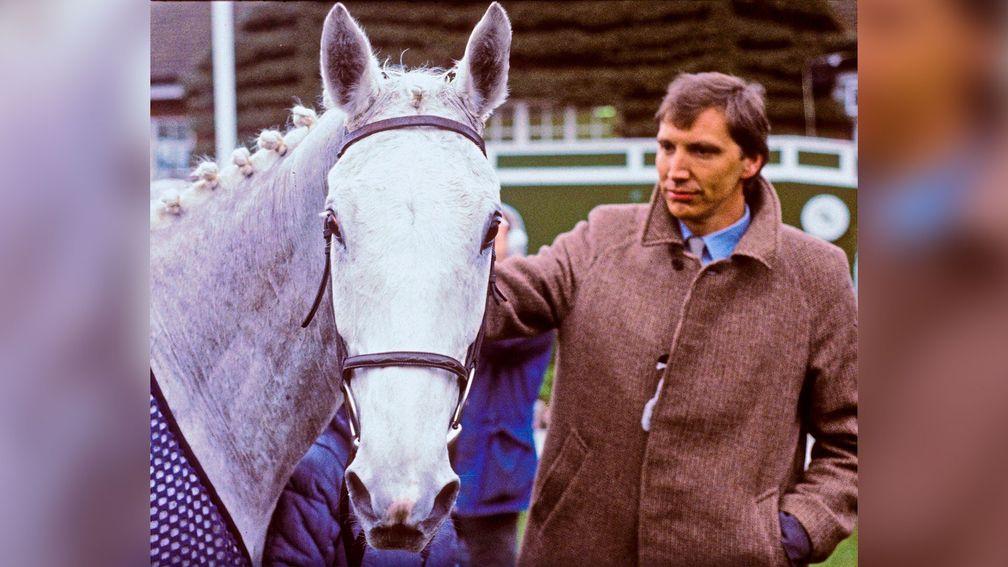
Victory went to the Doumen-trained The Fellow, who was half Dessie’s age, and the end of an era had arrived. “It was obvious that was the point at which to retire him,” Burridge says, “but David, sporting man that he always was, said we should wait until the next day to make the announcement and leave Francois Doumen with his day of glory.”
Birth of a legend: the low-budget origins of jump racing's biggest star
The bond between Kempton, Dessie and his people remained unbreakable. For many years he paraded on King George day, and still his statue has pride of place next to the parade ring.
“He certainly took it all seriously in his retirement, he’d always get himself up for the day,” Burridge says. “Of course he had the best of it because he got just as much applause before and after the race but he didn’t have to run three miles in between.”
Kempton always seemed to have that magical effect on him. “I’ve got an image of him coming out for his first race there and he looks like Jack the lad. He hasn’t the slightest idea of what he’s doing there, but at the same time he looks fairly certain he can do it whatever it is,” Burridge says.
“And there was another time in his novice chase season when we took him to Kempton and he was withdrawn and came back again without running, but he’d lost 20kg just in the whole excitement of being there.”
Acknowledging the track’s special place in Desert Orchid’s remarkable story, Burridge adds: “Thank you to Kempton for providing such a wonderful stage for him.”
It was a stage he bestrode like a colossus.
Read more from our Fans' Favourites series:
Lostintranslation: 'He's completely different now - he's back with a vengeance'
One For Arthur: 'For other horses it was a test but for him it was easy'
Denman: 'He could pick you up and chuck you out the box or take your arm off'
Thomas Crapper: 'They bought him for £8,000 and he won them nearly £140,000'
Silviniaco Conti: 'His jumping never let him down – he was absolutely class'
Secretariat: 'He was something else – I'm still waiting to see one as good'
Lady Bowthorpe: 'Even on Newmarket Heath, people know who she is'
Quiet Reflection: 'It poured down but we didn't care as she destroyed them'
Alpha Delphini: 'I asked them to stick me 50 quid each-way on that morning
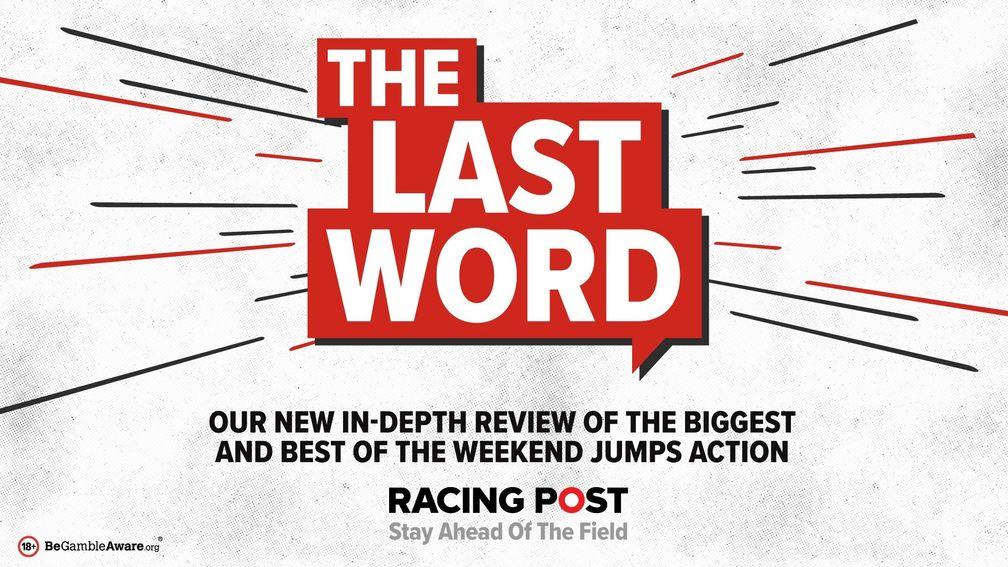
Catch our new in-depth review of the weekend's racing every Monday in the Racing Post. With big-race analysis from Grand National-winning jockey Leighton Aspell, Chris Cook's take on the weekend action, eyecatchers from the Raceform team, weekly awards and more, it is not to be missed.
Published on inFeatures
Last updated
- Top racing books of 2024: must-reads of the year, from the perfect Christmas stocking filler to a pioneering jockey
- Captain Marvel: how a modern master of Cheltenham and a genuine pioneer executed one of the shocks of the year
- 'We’re delighted with how it's going' - joint-trainers prepare for exciting year after Flat string is doubled
- 'We’ve had to work hard this sales season' - Kennet Valley seeking to build on success with biggest string
- Alastair Down's archives: the great writer recalls Coneygree's glorious victory in the 2015 Cheltenham Gold Cup
- Top racing books of 2024: must-reads of the year, from the perfect Christmas stocking filler to a pioneering jockey
- Captain Marvel: how a modern master of Cheltenham and a genuine pioneer executed one of the shocks of the year
- 'We’re delighted with how it's going' - joint-trainers prepare for exciting year after Flat string is doubled
- 'We’ve had to work hard this sales season' - Kennet Valley seeking to build on success with biggest string
- Alastair Down's archives: the great writer recalls Coneygree's glorious victory in the 2015 Cheltenham Gold Cup